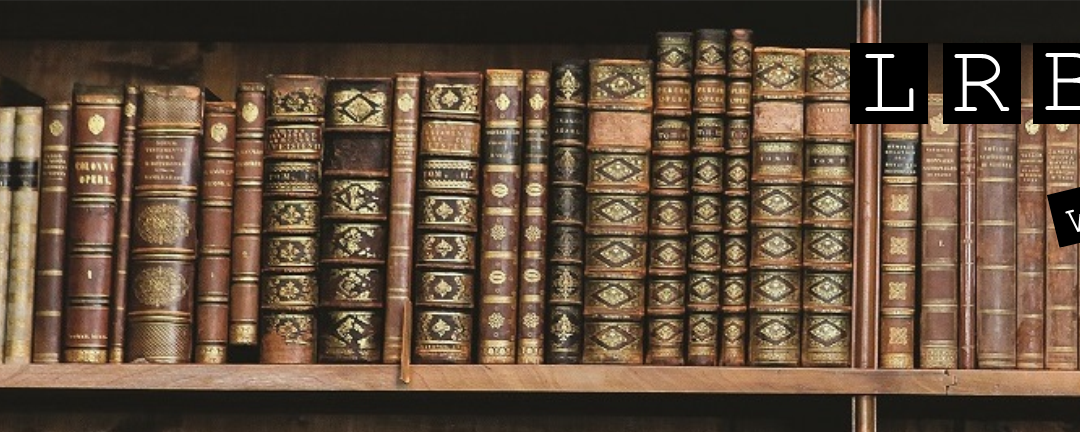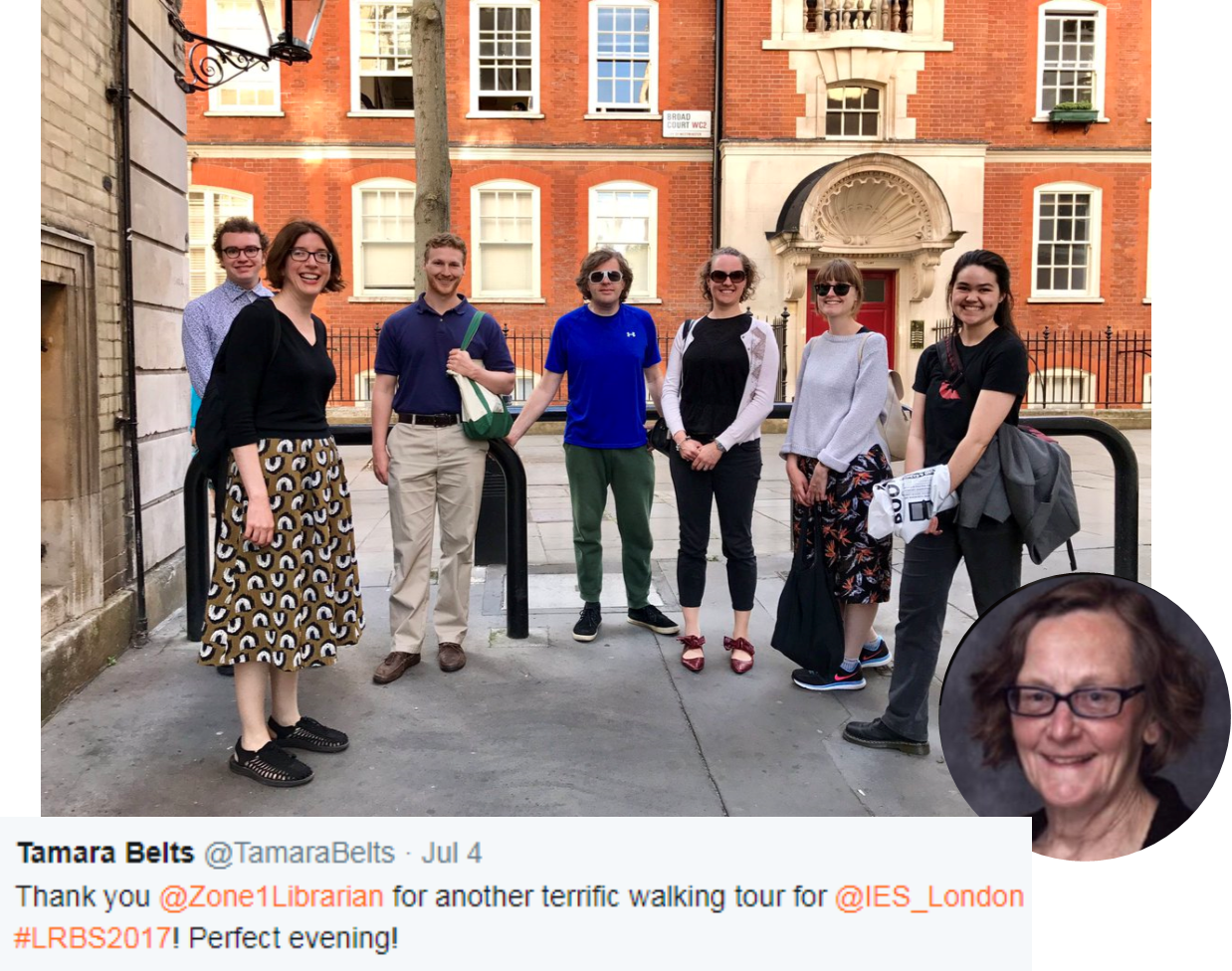The London Rare Books School (LRBS) continued with great success into its second week. With six courses running, LRBS students had an even greater choice of topics to pick from. We greeted some familiar courses and welcomed new ones, all with a fantastic range of tutors and guests alongside.
Thank you Maggs Bros for hosting another wonderful reception and Alice Ford-Smith for a gloriously sunny walking tour.
Keep reading if you’d like to find out more about week two of LRBS and see photos of what went on in the week!
The second week ran the following courses:
An intensive introduction to manuscript culture during Late Antiquity, the Middle Ages and the Renaissance to The Medieval Book with Senior Research Fellow and Professor Emerita of Medieval Manuscript Studies at the Institute of English Studies, Michelle Brown. This course examines the historical contexts for manuscript production and the techniques of production, terminology and methods of description and cataloguing, with a brief survey of palaeography and codicology.
A History of Reading with Associate Lecturer from the Open University Shaf Towheed. This course explores the nature of reading as it emerged in the late eighteenth century in the western world, and developed in the context of an industrial and then an advanced industrial society, introducing students to a variety of research resources and methods used by historians of reading.
With fellow, tutor, and Director of Studies in English at Queens’ College, Cambridge Andrew Zurcher, Introduction to Bibliography also ran. This course aims to give students an introduction to the various elements of bibliography and to set those elements within their appropriate historical and methodological contexts. It will examine the different forms of the book from manuscript through its development in its various printed forms.
The Queer Book with Brooke Palmieri, who is working on her PhD “Compelling Reading: The Circulation of Quaker Texts 1650-1700” also ran successfully. The purpose of this course is to re-evaluate the development of mechanical printing processes in terms of contingency rather than inevitability, strangeness rather than familiarity, and above all, in the moments when format and speedy dissemination are harnessed to disrupt normative culture.
With Reader in Book History and Communications at the Institute of English Studies Andrew Nash, week two welcomed History of the Book in Scotland. This course aims to give students an introduction to the history of the book in Scotland from the eighteenth century to the present, with a particular focus on the production and global dissemination of works of Scottish literature.
Finally, week two also ran Modern Rare Book Trade with Antiquarian bookseller (Ash Rare Books, London) Laurence Worms. The aim of the course is to explore in a broad way the huge contemporary market in rare and collectable books – in particular (although not exclusively) the market in literary first editions and manuscripts of relatively ‘modern’ vintage – the English-language literature of the last 200 years.





